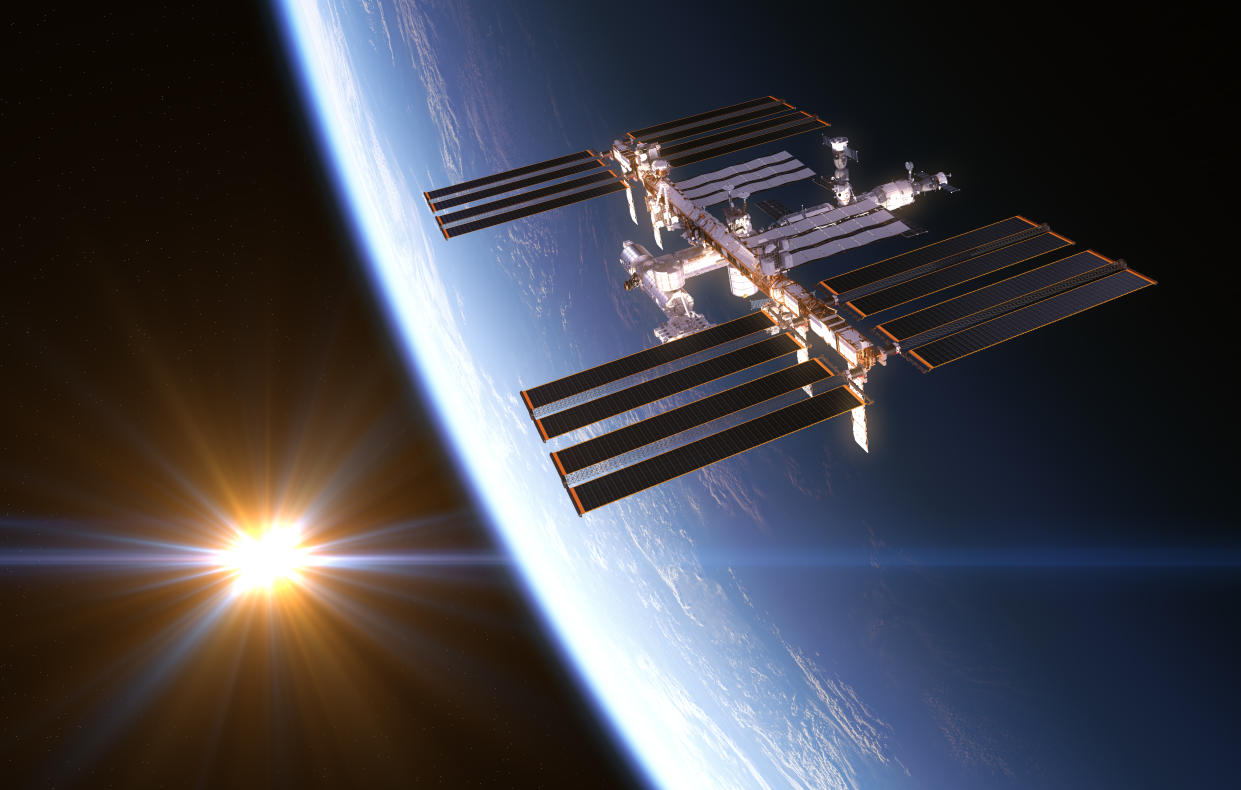Jeff Bezos spaceflight: 5 ways travelling into space can change the human body

This July, the world’s richest person, Jeff Bezos, will leave the world behind - as he flies into space on the first human flight from his space company, Blue Origin.
Bezos said this week that space flight was something he had wanted to do "all his life".
But travelling to space - particularly on longer missions - can have serious (and surreal) effects on the human body.
At least 60% of astronauts who spend at least a month in space experience negative changes to their bodies (due to the low gravity, and other factors such as radiation exposure).
Watch: Many of richest Americans paid nearly nothing in federal income taxes: Report
Read more: Mysterious “rogue planet” could be even weirder than we thought
Nasa has researched the subject intensively, with US astronaut Scott Kelly spending 200 days in space, while his identical twin, retired astronaut Mark Kelly, was monitored on Earth.
Data from such experiments will be crucial to ensuring astronauts can travel safely to the moon - and beyond to Mars.
Here’s some of the strange effects we already know astronauts can expect when they venture beyond Earth.
You can grow up to three inches taller
Astronauts tend to grow (sometimes quite a bit) due to the effects of microgravity on the human body - and in particular your back.
Japanese astronaut Norishige Kanai claimed he had grown three inches in three weeks, and worried he wouldn’t fit into the Soyuz seat to return to Earth.
Meanwhile Scott Kelly returned to Earth after a year in space to find that he was two inches taller than his own twin brother, NASA said.

Most astronauts grow by up to 3% during stints on the Space Station, in an example of how microgravity affects our bodies, according to Nasa.
Nasa said: "Imagine that the vertebrae in your back form a giant spring. Pushing down on the spring keeps it coiled tightly.
‘When the force is released, the spring stretches out. In the same way, the spine elongates by up to three percent while humans travel in space. There is less gravity pushing down on the vertebrae, so they can stretch out - up to 7.6 centimeters (3 inches).’
You suffer from “moon face”
Have you ever noticed how astronauts tend to have slightly puffy, bloated faces - known as ‘moon face’?
It’s because in space, there isn’t any gravity to pull blood into the lower part of the body (which normally happens on Earth).
It means that blood stays in the chest and head, giving astronauts puffy faces and bulging blood vessels.
The lack of blood flowing to the brain can have serious effects - meaning that astronauts can sometimes faint when they return to Earth.
Read more: Astronomers find closest black hole to Earth
Richard Hughson, principal investigator for the CCISS experiment at the University of Waterloo in Ontario, Canada researched the effects of long-term microgravity for Nasa.
He says, "In our research, the major symptom of concern is fainting, because an astronaut could get hurt.
"But even the less severe symptom of dizziness reflects a reduction in the blood flow to the brain. If the astronaut is not receiving enough brain blood flow, then he or she cannot think and perform critical actions properly."
Your eyes change shape
Alarmingly the eyes of astronauts can change shape in space, with a flattening of structures inside the eye and decreased sharpness of vision.
The effect is known as spaceflight-associated neuro-ocular syndrome (SANS) - and Nasa is investigating whether it could pose a threat to missions to Mars.
Researcher David C. Zawieja said: “Nasa is worried about the impact that long-term spaceflight will have on astronauts’ health and their ability to complete missions, because of the fact that their vision can be significantly impaired
“Their vision can be impaired — it can be temporary, it can be permanent, it can be mild, it can be severe, it can be in one eye more than the other.
“There’s a lot that we don’t know, but what we do know is that this is a mission-critical problem.”
Burping becomes… interesting
What happens when you burp in space? The answer is fairly disgusting, it turns out.
A former Space Station astronaut explained that it’s not at all like burping on Earth - and it’s all to do with gravity.
Former commander Chris Hadfield said: "You can't burp in space because the air, food and liquids in your stomach are all floating together like chunky bubbles.
"If you burp, you throw up into your mouth," he explained.
On Earth, trapped air tends to rise to the top of your stomach.
In space, it doesn’t, which means that a mixture of liquid vomit and air tends to come out.
Radiation can cause cataracts… and worse
Astronauts are exposed to large amounts of radiation in space, being outside our planet’s magnetic field and atmosphere which protect us from the constant bombardment of galactic cosmic rays.
On long space missions, astronauts would be unprotected, and the effects.
Physicist Marco Durante of the ESA said: "One day in space is equivalent to the radiation received on Earth for a whole year."
Astronauts already show a higher percentage of early-onset cataracts.
But on the long missions - such as to Mars - damage to the human body could extend to the brain, heart and the central nervous system, setting the stage for degenerative diseases.
Watch: Make a bid - Bezos's Blue Origin auctioning off one seat


